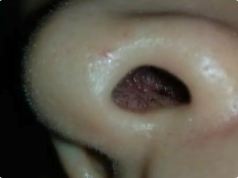Cuddling up with your cat at night might feel like the ultimate bonding experience. After all, who wouldn’t want to share their cozy bed with a furry companion? However, while this habit seems harmless—and even heartwarming—it could expose you to a potentially serious health risk: toxoplasmosis .
Toxoplasmosis is a disease caused by the parasite Toxoplasma gondii , which can be found in the feces of infected cats. Although many people are unaware of its dangers, this silent illness poses significant risks, especially for vulnerable populations like pregnant women, infants, and individuals with weakened immune systems. Here’s what you need to know about toxoplasmosis, how it spreads, and how to protect yourself while still enjoying quality time with your feline friend.
What Is Toxoplasmosis?
Toxoplasmosis is caused by the Toxoplasma gondii parasite, which infects humans and animals worldwide. Cats—especially those that hunt or eat raw meat—are natural hosts for this parasite, meaning they can shed infectious oocysts (egg-like forms of the parasite) in their feces. While most healthy adults may only experience mild flu-like symptoms—or none at all—the consequences can be severe for certain groups:
- Pregnant Women : If a pregnant woman contracts toxoplasmosis, the parasite can pass to her unborn child, potentially causing miscarriage, stillbirth, or developmental issues such as vision loss, hearing problems, or intellectual disabilities.
- Infants : Babies born with congenital toxoplasmosis may face lifelong complications.
- Immunocompromised Individuals : Those with weakened immune systems, such as people undergoing chemotherapy or living with HIV/AIDS, are at higher risk of developing severe symptoms, including brain inflammation or organ damage.
The danger lies in the fact that toxoplasmosis often goes undetected. Many infected people don’t realize they’ve contracted the parasite until it causes harm.
How Does Sleeping with Your Cat Increase Risk?
While simply sleeping beside your cat doesn’t directly transmit the parasite, sharing close quarters increases opportunities for exposure. For example:
- Litter Box Contamination : If your cat uses a litter box near your bed or you accidentally touch surfaces contaminated with fecal matter, you could unknowingly ingest the parasite through hand-to-mouth contact.
- Close Contact : Kissing your cat on the mouth or allowing them to lick your face introduces bacteria and potential parasites into areas where infection is more likely.
- Environmental Exposure : Infected cats can spread oocysts onto bedding, furniture, or carpets, creating an invisible yet hazardous environment.
Even if your cat appears perfectly healthy, they may still carry the parasite without showing any symptoms. This makes prevention critical, especially if you’re part of a high-risk group.
How to Protect Yourself While Loving Your Cat
You don’t have to give up snuggling with your cat entirely! By taking a few precautions, you can minimize your risk of contracting toxoplasmosis and continue enjoying your bond safely.
- Clean the Litter Box Safely
- Wear gloves and, if possible, a mask when cleaning the litter box. Alternatively, delegate this task to someone else in your household.
- Scoop the litter box daily. Oocysts typically take 1–5 days to become infectious, so frequent cleaning reduces the risk significantly.
- Wash your hands thoroughly with soap and water after handling the litter box or anything associated with it.
- Keep Your Cat Indoors
- Indoor cats are far less likely to come into contact with infected prey, such as mice or birds, which can carry the Toxoplasma gondii parasite.
- If your cat ventures outside, monitor their activities and limit access to areas where they might encounter infected animals.
- Practice Good Hygiene
- Always wash your hands before eating or preparing food, especially after petting your cat or touching objects that may harbor fecal residue.
- Avoid kissing your cat on the mouth or letting them lick your face. While these gestures are sweet, they increase the likelihood of transferring harmful microorganisms.
- Cook Meat Thoroughly
- Toxoplasmosis isn’t limited to cats—you can also contract it from consuming undercooked or raw meat. Pregnant women and immunocompromised individuals should ensure all meat is cooked to safe temperatures (at least 160°F/71°C).
- Regular Vet Check-Ups
- Schedule routine veterinary visits for your cat to monitor their health and rule out infections. Keeping your cat parasite-free benefits both of you.
Why Awareness Matters
Toxoplasmosis is often overlooked because it rarely causes noticeable symptoms in healthy individuals. But for those at higher risk, the stakes are much higher. Pregnant women, in particular, must be vigilant, as the parasite can cross the placenta and harm the developing fetus.
By understanding the risks and implementing preventive measures, you can maintain a loving relationship with your cat without compromising your health. Responsible pet ownership means balancing affection with awareness—and knowing when to draw boundaries.
While sleeping with your cat may seem like the ultimate expression of companionship, it’s important to recognize the hidden risks involved. Toxoplasmosis is a stealthy disease that underscores the importance of hygiene, prevention, and informed decision-making.
By adopting simple habits—like keeping your cat indoors, practicing good hygiene, and cleaning the litter box carefully—you can safeguard yourself and your loved ones while continuing to cherish your feline friend. Remember, staying safe doesn’t mean giving up cuddle time; it just means being mindful of how you interact with your pet.






